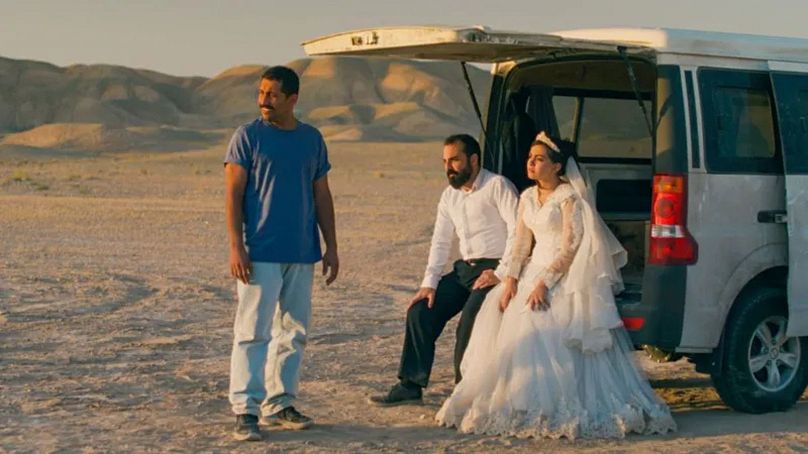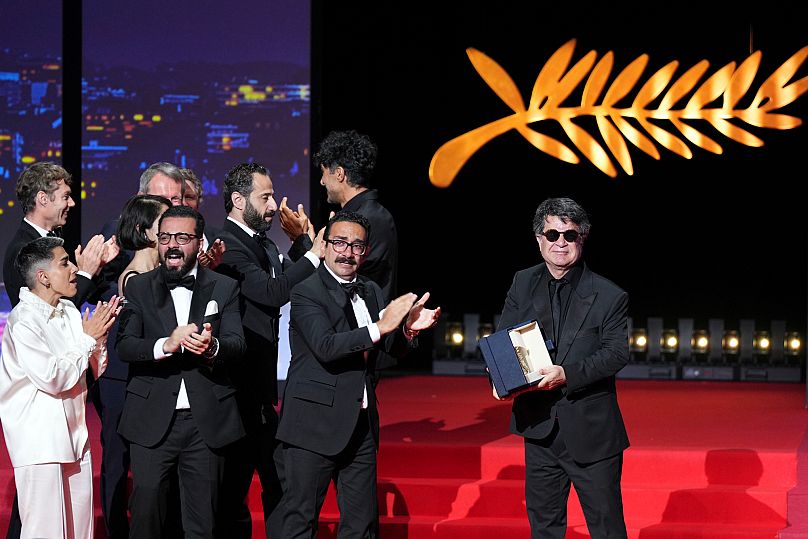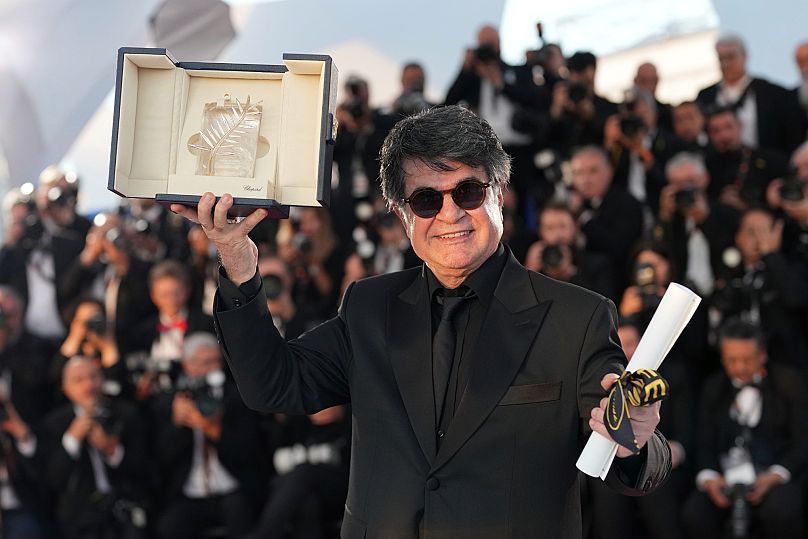Iran has summoned France’s representative in protest after the French foreign minister praised the Cannes-winning Iranian film as “a gesture of resistance against the Iranian regime’s oppression.”
French Foreign Minister Jean-Noel Barrot had praised It Was Just An Accident after it won the prestigious Palme d’Or at the Cannes Film Festival.
The film by famed dissident Iranian director Jafar Panahi centres on a man, Vahid, who abducts his suspected captor after being tortured in prison. To satisfy pangs of doubt, he decides to confirm his suspicion by bringing the man, locked in his van, to other former prisoners for identification.
Panahi, who was back in Cannes for the first time in 15 years due to a travel ban in Iran, drew on the experiences from his own imprisonment as well as the stories of detainees around him.
Stay tuned to Euronews Culture for our review of It Was Just An Accident and our full debrief of Panahi’s win in this week’s Culture Catch-Up.
Iran’s Foreign Ministry said the French minister was summoned over his “interventionist, irresponsible and instigative allegations,” the state-run IRNA news agency reported.
“Spare us Iranians the lectures. You have no moral authority whatsoever,” Iran’s Foreign Minister Abbas Araghchi said on X, citing France’s approach to Israel’s ongoing war in Gaza.
Last week, France threatened “concrete action” against Israel if the country didn’t halt the offensive in Gaza and lift restrictions on humanitarian aid. However, the statement was mostly dismissed as empty threats.
Immediately following the award’s announcement, the Iranian state news agency had announced a more muted celebration of the award, crediting the country’s film industry for winning a second Palme d’Or after Abbas Kiarostami’s 1997 drama, Taste of Cherry.
In Iran, film productions need to receive script approval from the government to shoot in public.
Panahi refuses to do that, knowing they won’t allow him to make the films he wants to, and It Was Just an Accident was filmed without cooperation.
Iranian state TV called the film a mixture of “lie and smearing” as well as an “underground” film produced without the required permits in Iran. State TV also chastised Panahi for not mentioning the plight of the Palestinians in his acceptance speech.
The Mizan news agency, an arm of the country’s judiciary, reported on the win as part of the “Political Cannes Film Festival,” suggesting that the prize was given to Panahi because of his political leanings.
However, pro-reform media outlets and activists praised Panahi.
“This victory is no accident — it is the result of a tireless dedication to exploring humanistic values and human rights,” said Nobel Peace Prize laureate Narges Mohammadi, who was also previously imprisoned at Tehran’s notorious Evin Prison.
Panahi was banned from travelling out of Iran in 2009 for attending the funeral of a student killed in anti-government protests, a judgment later extended to two decades. But even when placed under house arrest, Panahi kept making movies, many of which are among the most lauded of the century.
He made 2011’s This Is Not a Film on an iPhone in his living room. Taxi (2015) was clandestinely shot almost entirely within a car – and ended up winning that year’s Golden Bear at the Berlinale.
Panahi was arrested in 2022 when he went to the Tehran prosecutor’s office to inquire about the arrests of two other Iranian filmmakers. A judge later ruled that he must serve six years for an earlier sentence on charges of propagandising against the government from 2011 that had never been enforced.
In early 2023, Panahi went on a hunger strike and was released from Evin Prison.
Panahi said he would not seek asylum in another country, despite the risks of additional imprisonment.
“It’s simple. I’m unable to live here,” he said last week in Cannes. “I have no ability to adapt to a new country, a new culture. Some people have this ability, this strength. I don’t.”
On Monday, Panahi touched down in Tehran’s international airport to cheers.
One person was heard shouting “woman, life, freedom” as Panahi passed through the airport – a phrase that became the slogan for protests that broke out across Iran following the death of 22-year-old Mahsa Amini in police custody in 2022.
In his acceptance speech at Cannes, Panahi said, “What’s most important now is our country and the freedom of our country,” and called for Iranians to “join forces”.
He added: “No one should dare tell us what kind of clothes we should wear, what we should do, or what we should not do.”








